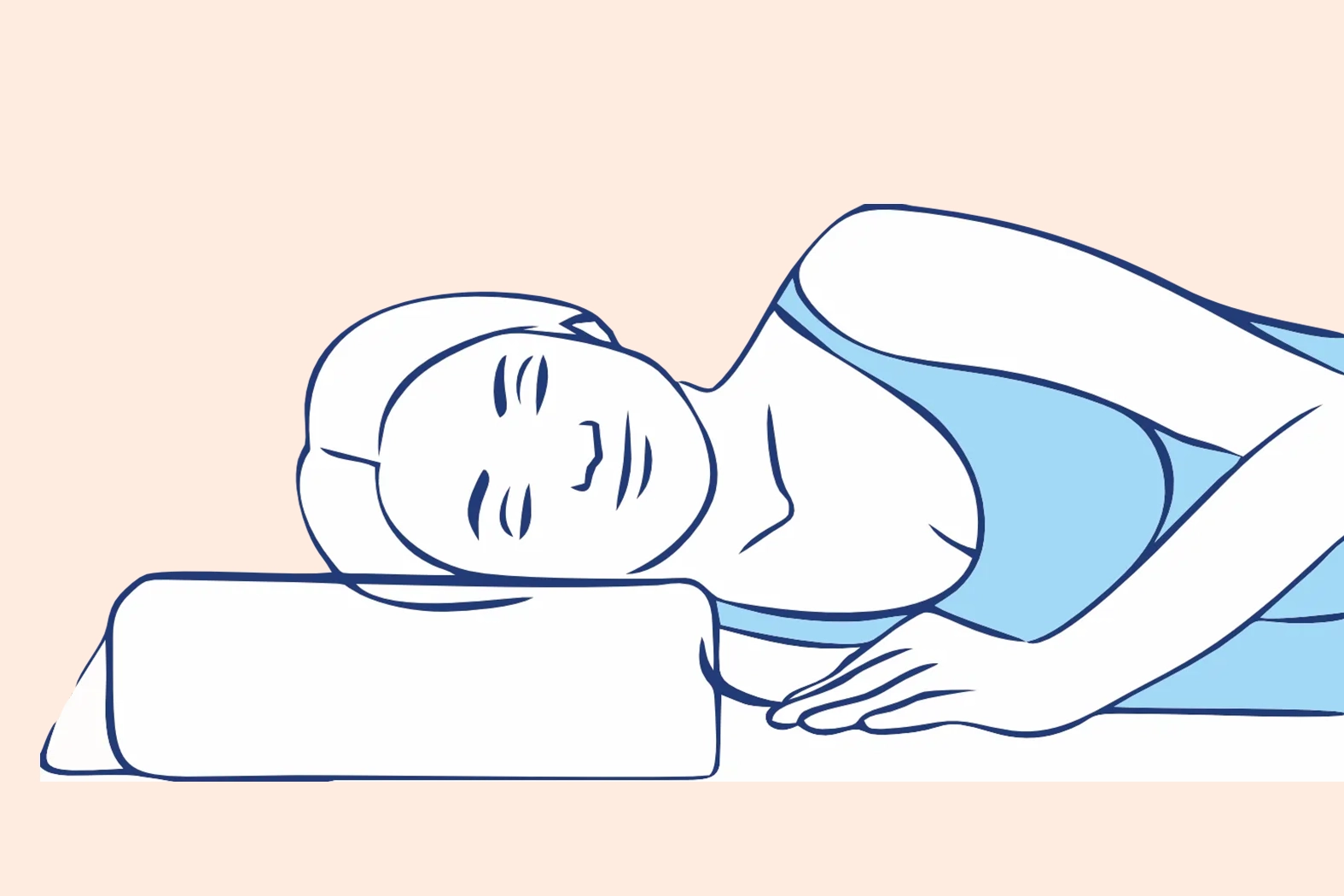To provide services at the highest level, we use cookies. Using the website requires you to choose settings related to their storage on your device. If you want to know what each type of cookie is used for, click the Details button below.
Is sleeping on your side the best?25 października 2023 |

Directly after side sleeping, various sleeping positions take their place in the popularity rankings. The suitability of back sleeping depends on an individual's needs and any potential health issues. Before evaluating whether sleeping on your back is suitable, it's worth considering the benefits and drawbacks associated with this sleeping position.
If you have a good mattress, sleeping on your back can be beneficial as it provides support for your head and spine in an anatomically correct position. However, for individuals without a functional mattress, it may not be very healthy. Only proper support will allow you to sleep on your back with your head, neck, and spine in alignment. For some, this can reduce lower back pain and other aches. However, for individuals with back pain in general, sleeping on their back is not recommended as it may cause discomfort during sleep.
Importantly, back sleeping may lead to or worsen sleep apnea and similar conditions in many individuals. In this position, the tongue falls back, and the functionality and flexibility of the throat muscles decrease. This results in significant restriction of airflow through the airways, leading to increased snoring, which becomes more intense.
Sleeping on your side is one of the most popular sleeping positions, adopted by over three-quarters of the human population. It means sleeping while lying on one of your body's sides, with your arms and legs extended in front of you, sometimes slightly bent. This is a natural sleeping position for humans and is extremely beneficial for health. Sleeping on the left side, in particular, can help prevent many sleep and health problems, including those related to the stomach and heart.
Lower back pain after sleeping on your side is mainly a result of improper body posture during sleep. To avoid this type of pain, it is important to maintain the spine in a neutral position, which can be aided by proper support while sleeping. Therefore, when experiencing lower back pain during or after sleep, it is essential to replace the mattress with a functional and healthy model and use orthopedic pillows and cushions between the knees.
Sleeping on your side correctly is quite easy. To sleep on your side properly, you should support your head with a properly contoured pillow and have a body-contouring mattress. Your head and spine should remain in a straight line throughout the night. It's also a good idea to gently bend your knees and place a pillow between them to stabilize your hips. Avoid excessive neck bending, and evenly distribute your body's pressure on the mattress.
For most people's heart health, sleeping on your side is recommended. Sleeping on the left side, in particular, is when the heart rests best. Sleeping on the left side can help improve circulation and significantly relieve the entire cardiovascular system. This position makes it easier for the heart to pump blood because it exerts the least pressure on the aorta and inferior vena cava.
To allow the spine to rest during sleep, it is important to ensure that the mattress and pillow provide strong support. You should also choose a sleeping position in which the spine is aligned straight, maintaining its natural curves, including lordosis and kyphosis. Adhering to universal principles of sleep hygiene is key to maintaining proper spinal health.